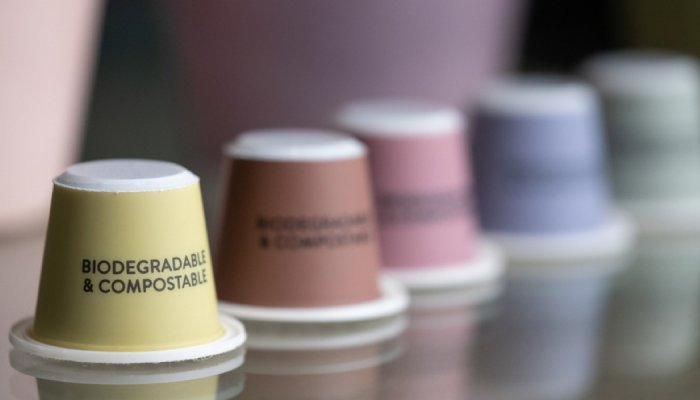Léa Drouelle, ETX Studio, with Premium Beauty News (Photo: © Lois GoBe / shutterstock)
7 November 2022

In the fight against plastic pollution, more and more brands are promising "biodegradable" and "home compostable" packaging. But what are these claims really worth? British researchers set out to investigate, and the results are far from convincing.
It’s not that easy to home compost plastic packaging! Actually, this solution might not be as environmentally friendly as it would appear at first sight. Such is the conclusion of a survey conducted by researchers at University College London, published in the journal Frontiers in Sustainability [1].
"Compostable and biodegradable plastics are growing in popularity, but their environmental credentials need to be more fully assessed to determine how they can be a part of the solution to the plastic waste crisis," write the researchers, who set out to investigate such claims.
Complex labelling
Using a citizen science approach, the research sought to survey consumers to find out more about their purchasing habits for so-called "biodegradable" and "home compostable" plastic products, their knowledge of how to recycle them properly, and the actual performance of such packaging.
The survey was conducted over a two-year period among 9,700 people across the UK. When asked if they were more likely to buy products with packaging marked "compostable" or "biodegradable," 85% answered "yes."
Of the participants, 1,648 actively engaged in a home-composting experiment (but only 902 completed it). The experiment involved examining the contents of the compost after depositing packaging (cups, jars, cutlery, newspaper wrappers) for traces of plastic. If 90% of the carbon in the test materials was gone within six months, they were considered compostable.
The results show that, on the whole, deciphering labels featuring terms like "compostable" and "biodegradable" remains difficult for consumers.
"Despite our best efforts to guide the participants only to compost items marked clearly as ‘home compostable,’ many items that are marked as industrially compostable or just as biodegradable have been entered into the experiment," note the researchers.
Hardly reproducible laboratory conditions
The study also suggests that laboratory testing for these materials is not working, which is a broader problem for the plastics industry, and calls into question whether these product standards actually protect the environment.
"The diversity of microbial communities, the catalytic pathways of nutrient transformation, the material chemical differences cannot be fully controlled and reproduced in vitro and hence home compostability standards are likely to be unreliable," note the study authors. They conclude: "home composting is not an effective or environmentally beneficial waste processing method for biodegradable or compostable packaging in the UK." Indeed, the only real solution is to use less plastic.
Footnotes
[1] "The Big Compost Experiment: Using citizen science to assess the impact and effectiveness of biodegradable and compostable plastics in UK home composting" by Danielle Purkiss, Ayşe Lisa Allison, Fabiana Lorencatto, Susan Michie and Mark Miodownik, in Frontiers in Sustainability, 03 November 2022





















